#yeongdo
Text
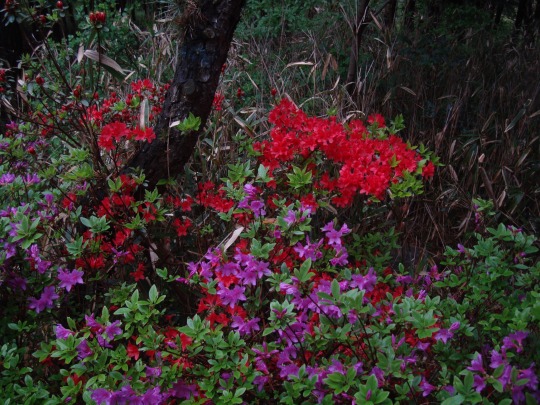
Yeongdo, Korea 04-16-23
4 notes
·
View notes
Photo
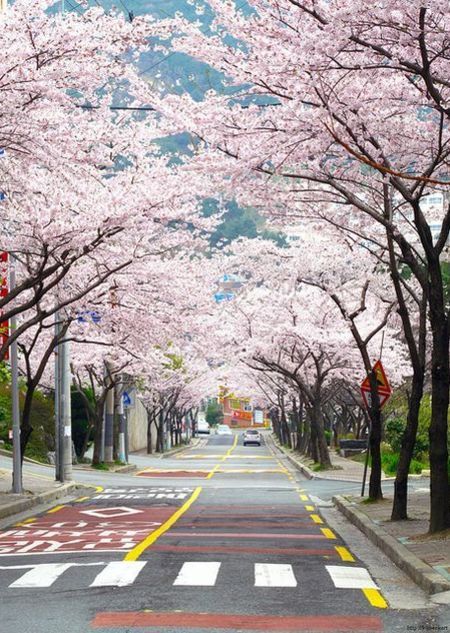
Cherry blossoms on Yeong-Do, Busan, Korea Photo by Ken Eckert
Experience the vibrant allure of cherry blossoms in full bloom on Yeong-Do, Busan, Korea. Stunning photo by Ken Eckert.
0 notes
Text
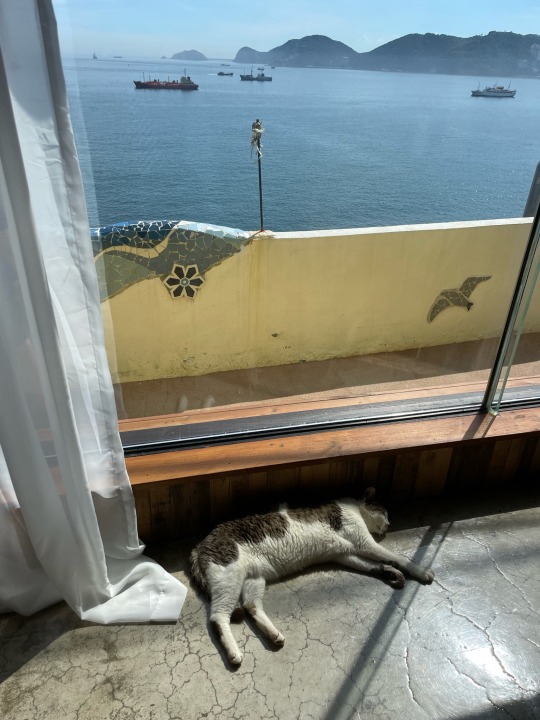
oh to be a sleepy cat in the sun in a coastal city
1 note
·
View note
Text

Map of Kiboren fron the korean fantasy novel The Bird That Drinks Tears by Lee Yeongdo.
4 notes
·
View notes
Photo

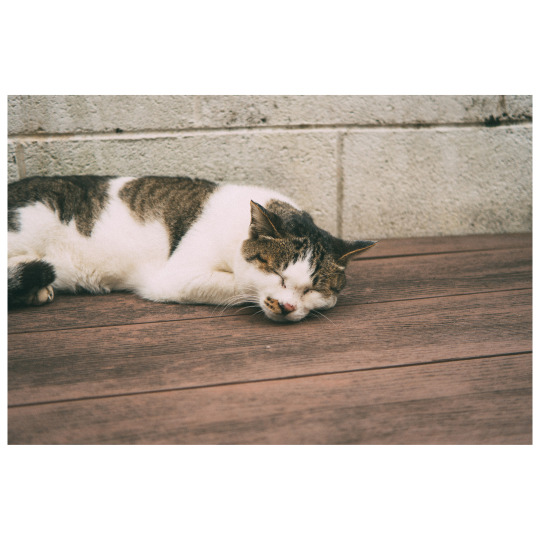

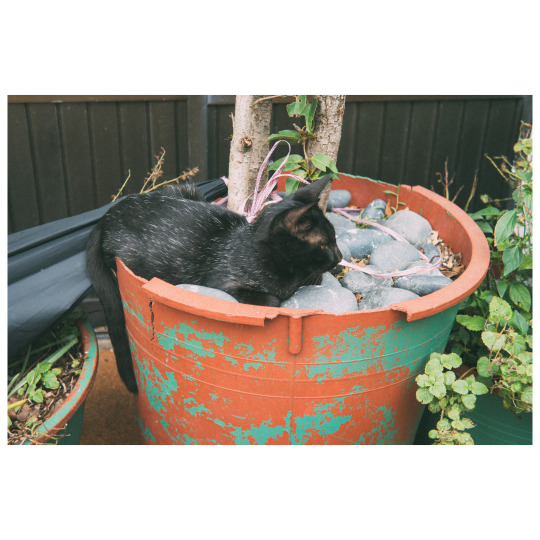
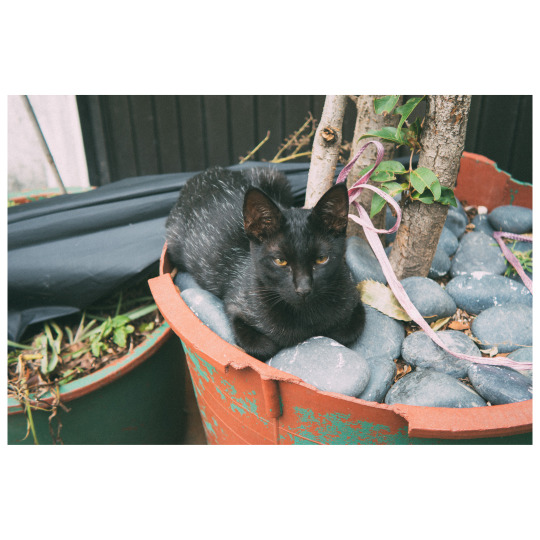
여기 고양이들은 사랑을 많이 받았는지 사람을 전혀 무서워하지 않는다.
The cats here are not afraid of people, perhaps because they are so much loved.
September 10, 2022.
Yeongdo(影島) Island, Busan.
17 notes
·
View notes
Video
youtube
Explore Busan - Korea's Beautiful Coastal City!
The Busan Cooperative Fish Market
The beautiful blue waters of Korea's largest portside city, Busan! At the Busan Cooperative Fish Market, located near the Jagalchi Market, the day begins at early dawn as merchants gather for the fish auction. Here, we were able to experience a very different scene from your typical city. The morning was gorgeously bright in Busan.
Gwangbok-dong & The PIFF Plaza
The coastal city of Busan is now growing internationally. The very first place we visited was the crowded Gwangbok-dong and the PIFF Plaza. There were many movie posters and handprints of popular stars at the PIFF Plaza. If you think about movies, you think Busan. And if you think about Busan, you think movies. When I visited the PIFF Plaza, there were hand-shaped prints everywhere.
That's right. Every fall, Busan opens an international film festival with attendances by all the top stars, both national and international, making it a fun night of entertainment. This film festival continuously grows year after year to present the largest venue for moviegoers. Every street that stretched out from the plaza was filled with places to eat.
I'd also like an order of Odari please. Like this, fried cuttlefish is prepared on the spot, and all the shops here offer deliciously prepared food that will make your taste buds tingle. Wow. This looks great. Do you see this? First of all, I'd like to say that I'm sorry, but I'm going to dive in and have a bite. Ah! delicious. You can all come visit the PIFF Plaza to taste the amazingly chewy Odari. But Busan is still another world for most. If you are worried about getting around in Busan, the Busan subway system connects you to all the popular tourist attractions including the PIFF Plaza.
Haeundae Beach
This is the first place that comes to mind for most when you mention Busan. Escape from the sweltering heat of the summer and take a visit to see the refreshing blue ocean waters! This is Haeundae Beach. The Haeundae Beach is Busan's most popular summer spot, and it seems like waves of vacationers have already started showing up. The ocean waters blow away the summer heat and the smiles on the faces of summer vacationer seem exceptionally brighter than ever while playing in the refreshingly cool waters. This is also true for foreign tourists as well.
Leisure Experiences
Let's go~!! Wouldn't you like to experience what it feels like to take a ride on a motorboat and speed your way around Haeundae's ocean waters? Not only that, but you can also cut through the cool ocean winds on Haeundae's oceans while surfing, Or take a cruise on a luxury yacht tour, along with other various unique leisure experiences that are prepared for you.
Taejongdae
Among all the venues that are available here, I chose to take a ride on the ferry to take a closer look at the jade colored waters of the ocean while touring the Taejongdae regions.
Here, the vast ocean waters meet the beautiful cliffs of Taejongdae, Where the Yeongdo Lighthouse now stands tall, painting a magnificent picture.
2 notes
·
View notes
Text
The Tiger who breaks the Dawn
#002 The Encounter (2)
Jjaeng-geulang!
A sharp sound hit his ears. Cheon Ryubeom remained still, his head bowed, staring down at the shards of pottery rolling by his side. A ferocious roar of rage fell from overhead.
“Worthless! Don’t you have shame, coming back to the family looking like this!”
“Didn’t even catch a single fox, tsk tsk.”
A stream of verbal abuse poured down on him as soon as he stepped foot into the large tiled-roof house. He had entered through the back door and was heading straight to his room when he unfortunately ran into the elders.
The elders of the Tiger Clan were very strict and demanding. And there were also those who didn’t like Ryubeom very much. When they saw Ryubeom’s face, they immediately frowned and clicked their tongues.
Judging from the contents of their scolding, it seemed that they had already heard from Cheon Yeongdo. Ryubeom remained silent, his head bowed. When dawn came, his cousins set off for the mansion first, leaving him behind, so he had to trek back alone. He washed off all the dirt and mud by the creek, but the torn clothes couldn’t be helped.
“I’m sure even the foxes laughed at you. Those sly animals must have watched your unsightly fall from hiding.”
Biting criticism and disapproval came one after another. Accustomed, Ryubeom let them pass through one ear and out the other. If you listened to too many things, it eventually became white noise at some point. Rather than purposely ignoring it, it was close to subconsciously shutting out.
Was it really such a big mistake, or were they just using it as an excuse to berate him? Ryubeom knew the difference well.
The cousins walking down the hall noticed the commotion and threw annoyed looks this way. The stares that said, ‘I knew it’. Irritated looks that clearly said ‘the mansion is noisy again today because of that guy’. Chattering whispers faintly reached his ears.
“What’s all this fuss in the morning?”
The seemingly endless stream of criticism was immediately cut off.
Silence came upon at the words uttered by a soundless presence approaching them. In an instant, the atmosphere changed, and everyone’s attention was turned to him.
A person dressed in a dark red long over-coat, his hair white as snow, and with a face full of wrinkles. His eyes nestled in the deep hollows of his wrinkled sockets were as shapely and sharp as they were, and not a hint of senility to be seen at all.
The existence exuding a sharp and lofty air, like an old pine tree perched atop a sheer cliff, was the patriarch of the Tiger Clan. Cheon Gun. A tiger who had protected the family for centuries and raised its prestige. A being close to god.
“My, my lord.....”
All the people gathered in the hallway greeted and bowed respectfully to the head of the family. Ryubeom also bowed his head deeply in greeting, but he could clearly feel his cold gaze falling on him, prickling even his skin.
Tsk. Soon, he heard a short click of a tongue.
“Pathetic.”
.....It was a remark infinitely shorter than the elders’ who preceded him, and although barely a single word, it cut exceptionally deep on Cheon Ryubeom’s heart. Ryubeom bowed his head a little deeper.
Soon, the patriarch moved on, no longer paying attention to Ryubeom. The tigers in the hallway swarmed after him. It was a very natural progression.
The patriarch rolled up his sleeve and massaged his right arm. A long, jagged, ugly scar stretched across it, as if a severed arm had been forcibly reattached.
“My right arm is sore from all this rain. We have to catch that damn traitor this time.”
“Yes. Everything will be as father wishes.”
“How’s the chase going? Still wandering abroad?”
“For now.....”
Their voices faded as they headed down the hallway on the other side. Ryubeom raised his head only after the surrounding movements completely disappeared. He’d had his head down since the moment he entered the mansion, and his neck was already stiff.
He quickened his steps towards the attic.
The mansion used by the tiger family was a spacious tile-roofed house with a 600-year history. Renovation works were carried out according to the trend of the times, and some of the annexes were extended to two floors. Ryubeom used the attic of the annex farthest from the center, among others.
It was a warehouse-like space, but Ryubeom liked it. It was far from the main building, so if he stayed in the room, it was less likely to run into other family members. He still had to attend family meals regularly, so he had to walk a long way every time he ate, but the space where he could be alone was so precious that it didn’t really feel like a drawback.
Ryubeom immediately washed himself when he arrived at the narrow attic. He bathed thoroughly for a very long time, as if trying to wash away all the words he heard and the glances he received yesterday and today.
Ryubeom came out after a while, and was about to flop down on the bed in a much refreshed state when he found something that had fallen out of his pants he had thrown it over a chair. It was a leaf.
Slowly, Ryubeom’s mouth fell open. He had completely forgotten about this. It was the leaf he had received from the fox last night, and the situation at the time was so urgent that he just shoved it in his pocket and completely forgot about it. He still didn’t know why the fox gave him the leaf in the first place.
He could see a few holes punctured here and there. Did he tear it when it was in his pocket? What is this.....
“.....a phone number?”
Confusion flooded Ryubeom’s eyes. It was clearly a phone number, as it was engraved with a hyphen in between so that it would not be mistaken for a simple series of numbers.
Engraving a phone number on a leaf to give someone. It was a fusion communication, a mix of tradition and modern. Ryubeom couldn’t take his eyes off the leaf even though he wasn’t unfamiliar with them. The moment the water drops from his hair hit the leaf and burst, the memories of last night clearly flashed past his mind like a vision.
It had been a bit of an impulsive decision.
If only he had hunted the foxes he found then, if only he had dragged them here, even if he hadn’t hurt them. He wouldn’t have to listen to the verbal abuse like a moment ago, and he wouldn’t have been scorned and insulted.
He knew it for sure even at that moment. He knew what would happen if he didn’t bring in the foxes.
And yet, he couldn’t bring himself to reach out to them.
The fox cubs trembling in fear, the fragile appearance of the children. Terrified to the bones that they couldn’t even hide their ears and tails. And the adult fox hugging the children tight, his guard up.
The sight of it triggered a flash of memory.
‘Mom, dad.....’
Ryubeom squeezed his eyes shut, and forcibly cut off his thoughts. A wry smile crept onto his lips. It was kinda funny, he managed to save them, but not himself.
Perhaps it was just mercy in passing. Did he want to be looked at with envy by those weaker than him? They must have seen him being ignored and thought he looked funny..... Ryubeom shook his head again when he ended up continuing his cynical thoughts like a habit and to kill the confused emotions.
He just washed up and came out, he didn’t want to do it again to calm himself down. Even though he failed the regular exam yesterday, and even though he failed to follow the order to hunt foxes, and even though he was called pathetic after rolling down the mountain.
‘.....They won’t kick me out of the family just yet.’
Thinking it would be okay since the Head didn’t say anything, Ryubeom finally flopped down on the bed. The leaf was still clutched in his hand.
To engrave a number like this, you would need to know how to use your spiritual power quite delicately.....
It shouldn’t have been hard to escape from the mountain if he had this kind of control over his spiritual power, but was it difficult since he was injured and had little foxes with him?
The extent of his injuries must have been quite severe. It was dark, so he couldn’t get a good look at his condition.
“Ah, I keep thinking again.”
Ryubeom shook his head. The words of the elders that there was nothing good about being entangled with foxes lingered in his ears. He had to get rid of the leaf quickly before anyone else found out.
However, just as he was about to put it on the bedside table, the leaf tore.
“.....!”
It wasn’t just torn, it completely crumbled into pieces. Instead of trying to piece it back together in panic, Ryubeom reflexively picked up his phone and entered the number engraved on the leaf. He knew he had to write it down before he forgot it. Ryubeom absently stared at the number listed on the screen when he was done.
The Tiger Clan and the Fox Clan didn’t get along very well. Tigers were the apex predators of the ecosystem, reigning over all animals, but most oftentimes, the Fox Clan liked to pick fights with them. The elders despised them intensely, always saying that they dared to attack without knowing their place.
Even the patriarch had warned that no one should get involved with a fox. There was no one in the clan who didn’t know that the wound on his arm was caused by the Head of the Fox Clan.
Even though he knew that the number should be deleted immediately, Ryubeom couldn’t bring himself to move his hand. The little foxes he saw last night flickered before his eyes.
Maybe I should text him.
Their guardian was injured when he found them, so wouldn’t it be okay to check if they had escaped well to the end? He knew none of the cousins who went to Gwanak Mountain together with him succeeded in the fox hunt, but he wondered if they were safe.
Ryubeom moved his hand. His thumb, which was supposed to head to the Message app, impulsively moved towards the Phone. The reasoning behind this was completely absurd.
‘I’ll definitely repay this kindness.’
He thought the voice he heard yesterday was especially nice.
Ryubeom’s tension rose as the sound of the call went on and on. His heart pounded with guilt and a strange sense of anticipation, as if he was doing something wrong. He even had a crazy thought that if he could confirm that they were safe, he might be able to forget the verbal abuse he had to receive today.
The other side finally picked up the phone.
Ryubeom unconsciously sucked in a breath. He could see the call duration displayed on the screen slowly increased, but there was no word from the other end. Not even a simple hello. Ryubeom hesitated and opened his mouth.
But before he could speak, he heard the other person’s voice.
- Uung, who is it?
It was a clear, ringing voice. He could tell by the tone that the other person was a child. Bewildered, Ryubeom narrowed his eyes and asked a question. Normally, in a situation like this, you could ask the other person’s name to confirm the owner of the phone, but unfortunately, he didn’t know his name.
“.....is this phone yours?”
- Ung? Mine is broken.
- What? This voice! It’s the tiger yesterday!
- Oh oh, yes! The good tiger who helped us!
The voices of the three little kids were heard, chattering back and forth. After confirming that they were the little foxes he saved yesterday, Ryubeom let out a sigh of relief. Fortunately, all three of them were fine.
“Yes, the tiger from yesterday. Where did the owner of this phone go?”
- Hiya is sick.
“.....Hiya?”
- Ung, Yeohi.
Was the fox’s name ‘Yeohi’? The child’s pronunciation was a bit slurred, so he wasn’t really sure, but Ryubeom nodded and replied.
“Is he very sick?”
- Ung, so he went to the sky.
“.....what?”
Ryubeom was taken aback for a moment, but since the child’s tone was lighthearted, it was probably not serious. Does that mean he went out for a while? Of course, it would be a big deal if he actually went up to the sky, but Ryubeom decided to ask another question.
episode 1 | episode 3 | episode 4 - | request access here
2 notes
·
View notes
Text
Pachinko (2017)
Min Jin Lee
📚 4/5 📚
A beautiful generational tale about a humble Korean family and its struggles and triumphs throughout the 1900’s Japanese colonisation. This story begins with the birth of Hoonie, a steady and hardworking Korean man with a gentle nature, a cleft palate, and a twisted foot, and follows the evolution of his family and its internal and external environments over several generations.
I personally enjoyed the way the Min Jin Lee takes the reader on a progressive journey from traditional to modern settings over time, starting with the humble fishing village of Yeongdo in 1910 and ending with bustling Osaka and Tokyo in 1989. I also loved the parallel exploration of the way culture and family values change (or remain the same) over long periods of time.
Even though the political overlay is a huge driver for the plot’s progression, it didn’t feel so overpowering that I couldn’t connect with the emotional inner workings of the story. This book has a little something for everyone - love, war, hardship, gambling and several tear-jerking moments. What’s not to love? I’m giving this a solid 4 out of 5 and encourage any historical fiction buff to give it a read.
Thanks for tuning into Court’s thoughts on this one.
Cheers
1 note
·
View note
Text
2013: The Unveiling of a Renovated Drawbridge in South Korea
A renovated drawbridge in Busan Metropolitan City in South Korea was officially reopened. (Busan is second only to Seoul as South Korea’s most populous city.) This bridge, which spans Busan Bay, connects Yeong Island (formally designated as Yeongdo District) with Jung District on the mainland portion of the city.
Yeongdo Bridge was originally completed and opened in 1934, when Korea was part of…

View On WordPress
0 notes
Text

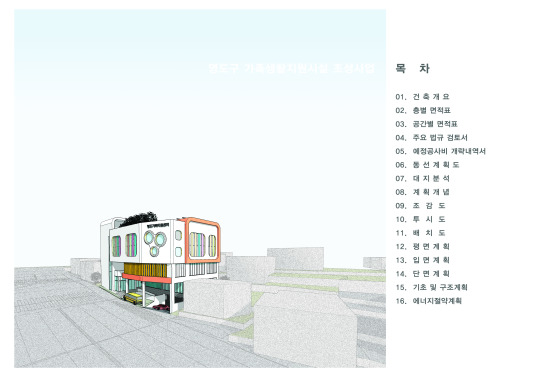


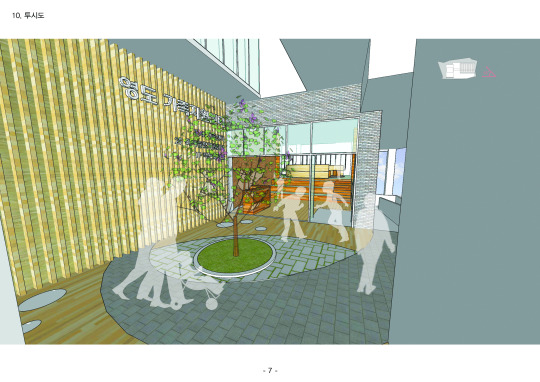

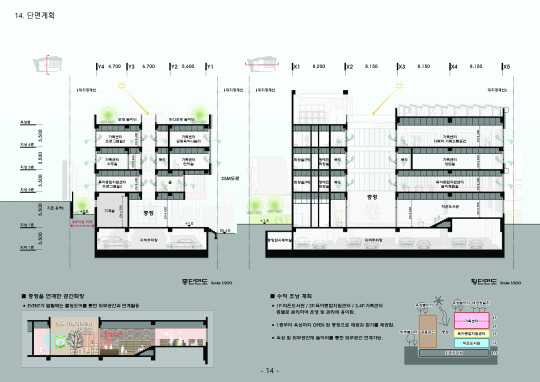



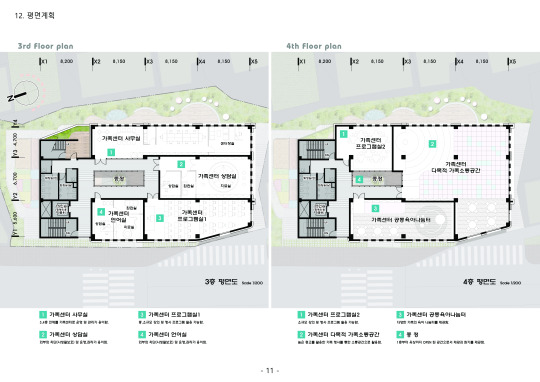

2022년 현상설계 참여작
Yeongdo-gu Family Life Support Facility
Design Competition
The Yeongdo-gu Government announces Yeongdo-gu Family Life Support Facility Design Competition (Open Design Competition) as follows.
작품명
하나된 가족의 연결 고리 "ROUND LINK"
작품설명
가족의 품에 안기듯, 이곳으로 오는 모든 가족을
따뜻하게 반겨줄 건물이 될것입니다.
"ROUND LINK"는 어린이들의 놀이터이자,
부모들이 육아를 공유하며 소통하는 공간이 될 것입니다.
행복한 가족의 미래가 만들어지는 시설이 될것입니다.
2022년 한해를 마감하면서 열심히 설계를 했었습니다.
결과는 아쉬움이 많이 남았지만,
다음을 기약하며, 기록을 남깁니다.
0 notes
Text
Watch "부산영도대교,영도항,용두산공원 | 드론영상 | Korea, Busan Yeongdo Bridge, Yeongdo Port, and Busan Tower" on YouTube
youtube
0 notes
Text
A Mobile Constellation
How do identity and the concept of a “nation” evolve and intertwine?
On Solomon’s 14th birthday, black ink stained his fingertips as he completed his mandatory registration at the Yokohama Ward Office in Japan—a physical mark of his status as a “resident alien” in the country he was born and raised in. The Japanese government had made it abundantly clear: he was a foreigner in his own home and would always be one. Solomon had never stepped foot in Korea once, but they would not let him forget the Korean blood coursing through his veins that automatically labeled him as inferior to his Japanese peers. In Pachinko by Min Jin Lee, Solomon is the last generation of four portrayed in the novel. His grandmother, Sunja Baek, moved to Japan from a small fishing village in Korea in 1933—nearly 50 years ago from Solomon’s birthday. For 50 years, she has been building her life and family in a nation that was wholly unwelcoming to her, plagued by raging xenophobia, discrimination, and supremacism.

For 1st-generation immigrants like Sunja, the immigrant experience centers around the permanent absence of “home” and the necessity of survival. Even as she sold kimchi and candy for countless hours every day at Japanese train stations, she did not question her Korean identity for a second. The vivid sights, smells, sounds, and people of Yeongdo, where she was raised, were burned into her mind and for her, that would always unquestionably be home. No matter how successful she was in building a large, healthy family and attaining financial stability, it’s difficult to recreate that feeling of comfort again. Sunja was in a constant internal battle: the obligation to adapt to the societal competition of the “welcoming country” versus the equally significant obligation to preserve her family’s Korean heritage.

This confrontation only grew more intense and complicated as generations passed. In the humanities journal, Diogenes, Selim Abou explores Roger Bastide’s theory of separating acculturation into two stages by generation: material and formal. While material acculturation results in unavoidable economic participation and adherence to societal norms, formal acculturation reaches deep into a person’s perception of themselves. Abou writes, “The children of immigrants, born in or arriving very young to the welcoming country, can no longer give themselves to the dichotomous strategy of their parents. Forced, from a very young age, to interiorize the two present cultural systems, that of the country of origin at home and eventually within the ethnic group”. In an idealistic form of integration, second-generation immigrants and beyond eventually undergo cultural synthesis, blending their ethnocultural identity and cultural national identity as they craft, consolidate, and redefine their identity throughout the natural process of growing up.
However, this evolution only occurs smoothly if the welcoming country is, in fact, “welcoming”. Acculturation is a dynamic, yet sensitive process that is unique to each individual and their setting. Two people are both Chinese-American—but if one grew up in the Bay Area and the other grew up in rural Wyoming (nothing against Wyoming, of course), they are bound to have drastically different interpretations of their cultural national identities. When facing hostility because of who you are at birth, integration becomes ten times more difficult: an antagonistic, precarious limbo between ethnicity and nationality, blood, and birthplace. One of the most unfortunate, yet common results of this paradoxical confrontation is shame. And because we tend to embrace the aspects of our identity that make us feel the most secure in our immediate environment, that shame falls to blood.

The A24 movie, Minari, highlights the complexity of the American immigrant experience, as the Yi family moves to Arkansas, a primarily white area, to begin building a new life. When the grandmother moves as well to support the family, David, the 7-year-old son, doesn’t see her as a “real grandma”. A real grandma would bake him cookies after school, not force him to eat Yachaejeon—Korean vegetable pancakes (they are so delicious though!). His grandmother—despite all the love and care she gave him—represents the part of him that prevents him from fitting in with the other children at school. Similarly, in Pachinko, Noa (Sunja’s eldest son) spends his elementary school years hiding his Korean ethnicity by going solely by his Japanese name and lying about his family tree.

I’ll admit, while watching and reading those situations, I wanted to physically pick them up and shake some sense into their fictional pre-pubescent selves. Most people I’ve talked to (myself included) have regretted the time they spent trying to suppress their family’s culture into oblivion to adhere to the majority. It’s something you can only truly appreciate when you’re older and don’t find yourself in enclosed social environments, such as school.
As much as their behavior frustrated me, David and Noa’s struggles showcase the personal crises that 2nd-generation immigrants undergo in the face of discrimination. Even at a young age, it’s not difficult for children to figure out that the reason they are being ostracized and belittled is because of their ethnicity. As a result, the integration and identity formation processes are inhibited. Noa never reconnected with or embraced his Korean heritage. He was ashamed of his past and treated it like a dirty secret. When he ran away from university to restart his life in Nagano, he once again pretended to be Japanese—knowing that if anyone knew the truth, he would be shunned to the bottom of society like the rest of his family.

The immigrant experience is only one situation of many that highlights the multidimensional nature of cultural national identity. It is a fluid, evolving mechanism of self-concept that becomes a diverse melting pot of our experiences, environment, and the influence of those closest to us. It is as indefinite and definite as we would like it to be.
One of the first steps toward crafting a new cultural national identity is proper documentation—citizenship. On the other side of the personal barriers, are the legal ones. In the end, it didn’t matter how well Solomon was able to unify his Japanese and Korean identities—he was still getting scanned and fingerprinted at a ward office when should’ve been enjoying cake with his friends. A majority of immigrants—regardless of where they emigrated from—see citizenship as the final step in becoming fully a part of their new home. The Netflix documentary, Out of Many, One, follows the journey of five immigrants from various countries as they study for the U.S. citizenship test under the New York Historical Society’s “The Citizenship Project”.

On its surface level, citizenship is a meticulous, tedious legal process culminating in a little navy book with pages of faded patriotic paintings. On a symbolic level, it represents full acceptance into a community—accompanied by obligation, rights, privileges, and freedom. At the naturalization oath ceremony at the end of the documentary, these five immigrants realized that all their sacrifices and suffering were worth it. They could create a new meaning of home without living in fear of being sent back to oppression, danger, or inevitable poverty. Although acquiring citizenship does not ensure harmonious cultural integration, it quickly becomes a core part of a person’s ever-changing identity.

Tied to cultural identity are the forces of nationalism and patriotism. Through a historical lens, both have a pretty bad reputation: the sources of Hitler’s rise to power, hatred, war, and cultural superiority. But in the concept of the “nation”, we find community and comradeship unlike any other. When immorality, corruption, and inequality embed themselves deep into the fabric of society, we don’t abandon our country—we do everything in our power to fix it from the bottom up or top down. In the nation, there is culture, history, symbolism, language, art, and innovation worth saving, in which after the most horrific atrocities, people find a way to return to. It’s home. How could we not? Walter Berns in the Public Interest magazine evaluates the basis that “America is founded on a social contract, entered into by naturally free and ungoverned individuals, and insist that…nothing but the contract binds them to one another. They believe that it is natural for men to love something beyond themselves and that it is most natural to love the community to which they naturally, rather than contractually, belong,”.

^^ waited in a line for 2 hrs to see this, not sure if it was worth it
According to Berns, Americans were connected by a strong belief in the three natural rights—“life, liberty, and the pursuit of happiness”. However, though these rights still form the backbone of society (and hopefully always will), American nationalism is supposedly a shadow of what it once was at its conception. History tells us that there is nothing that sparks nationalism better than a common enemy, a scapegoat to blame all of society’s problems on and direct its grievances toward. The colonists were unified by their hatred of the British but many years later—once the fervor of the Revolution faded—all that was left were citizens increasingly aware of their growing differences. The nation will always hold a significant place in people’s identity but it’s increasingly difficult for it to overpower people’s “natural communities” (ethnicity, race, gender, etc.).
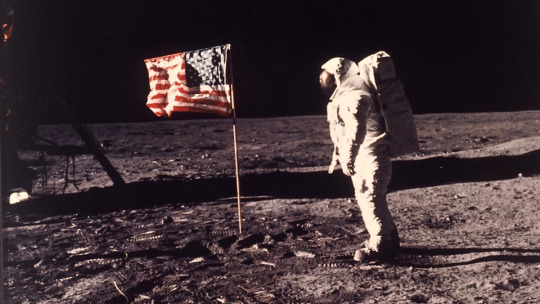
But is a growing recognition of these natural differences the absence of nationalism? In Theoria: A Journal of Social and Political Theory, Vincent asserts, “Multiculturalism is, in effect, nothing but internally diverse micro-nationalisms…not an avoidance of nationalism, just an acknowledgment of its pervasiveness and fragmentariness. Multiculturalism is the seedbed of nationalist aspiration,”. This idea surprised me; I’ve always associated nationalism with homogeneity, and multiculturalism, its antithesis. It’s possible that nationalist and patriotic sentiments are being directed toward our natural communities rather than the country as a whole like it was during the American Revolution. But I don’t necessarily agree with Vincent. Multiculturalism—at least the kind I’ve known all my life—is a melting pot, not a powder keg.
My relationship with my own cultural identity has been simple and complicated at the same time. My parents are 1st-generation Chinese immigrants who came to America seeking new economic and vocational opportunities. I was raised in Canada. But I’ll probably spend the rest of my life in the United States. There’s always a certain degree of guilt and longing in the back of my mind. Guilt over not being able to write my family’s language well. Longing to be connected to a culture that was never fully mine, to begin with. Despite these conflicting feelings, the multicultural communities I grew up in are what made it all make sense in the end.

“Flex your hand up and down quickly to the rhythm of the song—that symbolizes the four stages in the cycle of life”. My friend from Cambodia, Soteara, taught me the Apsara dance to perform at the school cultural showcase in 8th grade. I scrutinized her hands with unbreakable concentration, intent on mastering the intricate hand movements. At the lunch table, Avnoor would bring pani puri for us to try—mixing the spicy tamarind water right in his water bottle—while Joelle’s homemade fattoush quickly became a staple of our half-hour feasts.

The human desire to fit ourselves and others into comfortable, designated boxes is inevitable. After all, we want to be loved, recognized, accepted, and connected to others who we believe share similar values and characteristics. American philosopher, Martha Nussbaum, stated, “National boundaries are not only artificial, she says, but arbitrary barriers that blind us to our common humanity. "Why," she asks, "should we think of people from China as our fellows the minute they dwell in a certain place, namely, the United States, but not when they dwell in a certain other place, namely China?" Peoples differ, she admits, but they share "common aims, aspirations, and values,” (Berns). Although they unite us, the three natural rights that grace the headlines of the Declaration of Independence are not distinctly American. No aim, aspiration, value, or right will ever be unique to a single country. People are citizens of their country as defined by a little navy book and a mysterious records system. But when we recognize that we are just as much citizens of the world, we transcend invisible geographical borders and geopolitical differences.

Cultural national identity is so intriguing to me because there isn’t a social science that can properly define or keep up with it. It is an entirely individual perception of yourself. However, the designation “mobile constellation” (Abou) gets close to perfectly describing it. Every factor—ethnicity, race, language, gender, nationality, culture—is a star in a unique interstellar image that bends, twists, and shines brighter over time.
Works Cited
Abou, Selim. "The Metamorphoses of Cultural Identity." Diogenes, no. 177, spring 1997, p. 3+. Gale General OneFile, link.gale.com/apps/doc/A19713128/ITOF?u=lom_troyhs&sid=bookmark-ITOF&xid=f007f349. Accessed 12 Apr. 2023.
Berns, Walter. "On Patriotism." Public Interest, no. 127, spring 1997, p. 19+. Gale General OneFile, link.gale.com/apps/doc/A19416354/ITOF?u=lom_troyhs&sid=bookmark-ITOF&xid=f6bfb692. Accessed 12 Apr. 2023.
Vincent, Andrew. "Nationalism and the Open Society." Theoria: A Journal of Social and Political Theory, no. 107, Aug. 2005, p. 36+. Gale General OneFile, link.gale.com/apps/doc/A136649948/ITOF?u=lom_troyhs&sid=bookmark-ITOF&xid=3ed75674. Accessed 12 Apr. 2023.
Minari. Directed by Lee Issac Chung, A24, 2020.
Out of Many, One. Directed by John Hoffman and Nanfu Wang, Netflix, 2018.
(Final)
0 notes
Photo



저 석면 슬레이트 지붕은 괜찮은 건가.. 뭔가 코로 들어오는 것 같은데.. 흠..
September 10, 2022.
Yeongdo(影島) Island, Busan.
16 notes
·
View notes


